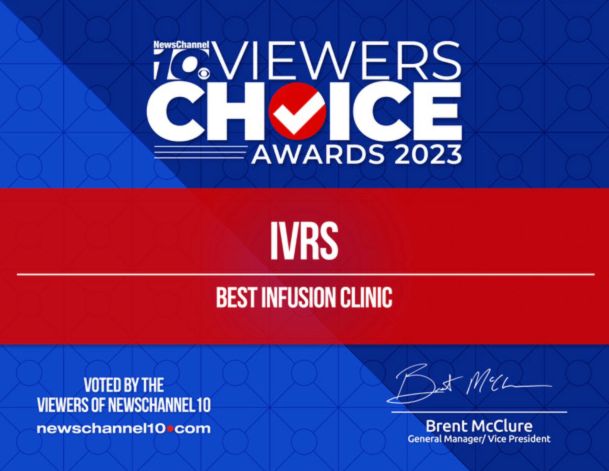Peptide therapy involves using specific sequences of amino acids to target and influence various bodily functions, including hormone regulation, immune response, and tissue repair. It’s a revolutionary approach to integrative health and wellness that offers a multitude of benefits.
- Peptide therapy uses natural compounds to boost your body’s healing and rejuvenation processes.
- It can help with hormone regulation, immune response, tissue repair, and more.
- Real-life results show improvements in energy levels, muscle recovery, and anti-aging.
- Safety and efficacy are well-documented, making it a reliable option for many conditions.
What Is Peptide Therapy?
Peptide therapy involves administering peptides, which are short chains of amino acids, to achieve specific health benefits. These peptides can mimic the body’s naturally occurring peptides and thus influence various physiological functions.
How Peptide Therapy Works
Peptides function as signaling molecules in the body, instructing cells to perform specific tasks. By introducing specific peptides, we can trigger desired responses, such as increased hormone production or accelerated healing processes.
Types of Peptides Used
- CJC-1295/Ipamorelin: Often used for growth hormone release.
- BPC-157: Known for its healing capabilities.
- Thymosin Beta-4: Enhances immune function.
Benefits of Peptide Therapy
Peptide therapy offers a broad range of benefits that make it appealing for various health goals.
Hormone Regulation
Peptides like CJC-1295/Ipamorelin can help regulate hormones, particularly growth hormone, which can decline with age. This regulation can lead to improved sleep, better mood, and enhanced cognitive function.
Immune System Support
Thymosin Alpha-1 is a peptide known for boosting immune function. This can be particularly beneficial for those with chronic illnesses or weakened immune systems.
Muscle Growth and Recovery
Athletes often use peptides like CJC 1295/Ipamorelin to promote muscle growth and speed up recovery times. These peptides can enhance muscle mass and improve overall performance.
Tissue Repair
Peptides like BPC-157 are known for their ability to accelerate the healing of tissues, making them useful for injuries and post-surgical recovery.
Anti-Aging
Peptide therapy can also have anti-aging effects. By stimulating collagen production and improving skin elasticity, peptides can help reduce wrinkles and fine lines.
Real-Life Experiences with Peptide Therapy
Several patients have reported significant improvements in their health and well-being after undergoing peptide therapy.
Case Study 1: Hormone Imbalance
A 45-year-old female with hormone imbalance issues started peptide therapy using CJC-1295/Ipamorelin. Within three months, she experienced improved sleep, better mood, and increased energy levels.
Case Study 2: Athletic Performance
A 30-year-old male athlete used CJC-1295/Ipamorelin to enhance muscle growth and recovery. He noticed a 20% improvement in his performance metrics and a faster recovery from strenuous workouts.
Safety and Side Effects
Peptide therapy is generally considered safe with minimal side effects. However, some individuals might experience reactions such as redness at the injection site, nausea, or temporary fatigue.
Safety Measures
- Professional Guidance: Always undergo peptide therapy under the supervision of a qualified healthcare provider.
- Dosage Control: Stick to the recommended dosages to avoid potential side effects.
- Regular Monitoring: Regular follow-ups can help in adjusting the therapy according to individual responses.
Peptide Therapy vs. Traditional Treatments
Traditional treatments like hormone replacement therapy or pain medications come with their own set of side effects and limitations. Peptide therapy offers a more targeted approach with fewer side effects.
Comparison Table: Peptide Therapy vs. Traditional Treatments
| Criteria | Peptide Therapy | Traditional Treatments |
|---|---|---|
| Side Effects | Minimal | Often significant |
| Efficacy | High for specific uses | Variable |
| Target Specificity | High | Low |
| Long-term Benefits | Sustainable | Often temporary |
| Cost | Moderately high | Variable |
Choosing the Right Peptide Therapy
Selecting the appropriate peptide therapy involves understanding your specific health needs and goals. A healthcare professional can guide you through the various options available.
Common Health Goals Addressed
- Anti-Aging: Peptides like Thymosin Beta-4 can help.
- Immune Boost: Thymosin Alpha-1 is effective.
- Weight Loss: Peptides can improve metabolic functions.
How to Start Peptide Therapy
Starting peptide therapy involves a few essential steps:
- Consultation: Speak with a healthcare provider to discuss your health goals.
- Testing: Undergo necessary tests to determine your baseline health status.
- Personalized Plan: Receive a customized peptide therapy plan.
- Administration: Follow the prescribed method of administration, which could be injections or oral supplements.
Understanding the Science Behind Peptides
Peptides are essentially small proteins that serve as building blocks for various biological processes. Their ability to interact with cells and tissues makes them highly effective for therapeutic use.
Mechanisms of Action
- Signaling Molecules: Peptides act as messengers, instructing cells to perform specific functions.
- Hormone Mimics: Some peptides can mimic natural hormones, thereby influencing bodily functions.
- Immune Modulation: Certain peptides can enhance or suppress immune responses.
Peptides and Proteins: What’s the Difference?
While peptides are short chains of amino acids, proteins are larger and more complex structures. Peptides can often accomplish specific tasks more efficiently due to their smaller size and targeted action.
FAQ on Peptide Therapy
What are peptides?
Peptides are short chains of amino acids that act as signaling molecules in the body.
How is peptide therapy administered?
Peptide therapy can be administered through injections, oral supplements, or topical applications.
Are there any side effects?
Side effects are generally minimal but can include redness at the injection site, nausea, and fatigue.
Is peptide therapy safe?
Yes, when administered under professional guidance, peptide therapy is considered safe.
How soon can I see results?
Results can vary, but many individuals notice improvements within a few weeks of starting therapy.
Peptide therapy offers a revolutionary approach to integrative health and wellness by utilizing natural compounds to target specific bodily functions. Whether you are looking to enhance your athletic performance, boost your immune system, or improve overall well-being, peptide therapy provides a safe and effective solution.
Final Thoughts
Peptide therapy is an innovative and highly effective approach to achieving various health goals. By using natural compounds to influence bodily functions, it offers a targeted and efficient way to improve overall well-being. If you’re considering peptide therapy, consult with a healthcare provider to create a personalized plan that suits your specific needs.




